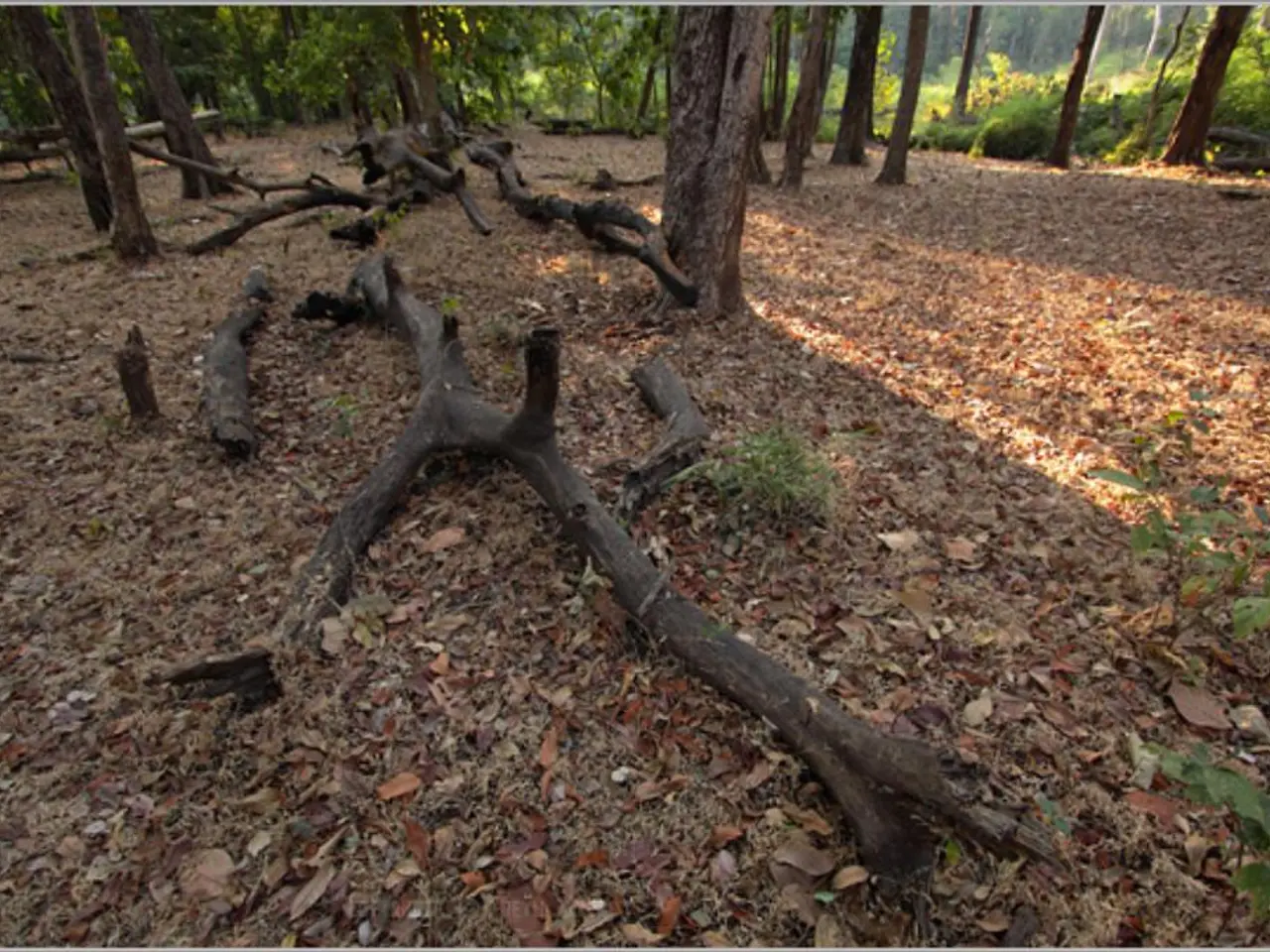"Metsä Group mill initiates pioneering operation of a carbon capture pilot plant"
In a significant stride towards sustainable manufacturing, Metsä Group and Andritz have established a carbon capture pilot plant at Metsä's Rauma mill in Finland. This groundbreaking initiative marks the first time carbon dioxide (CO2) has been harnessed from pulp mill flue gases in the industry.
The pilot plant, operated by Metsä Group's carbon capture project director, Kaija Pehu-Lehtonen, is demonstrating promising results with the pulp mill's flue gases. This pilot project is a crucial step towards gathering information about requirements for flue gas treatment and the quality of the end-product.
Meanwhile, the European chemical industry is heavily reliant on fossil fuels as raw materials, contributing to deindustrialization. To combat this, Metsä Group and its partners are focusing on renewable carbon technologies, with the hope of generating economic benefits for the EU.
One such partnership involves VTT and LUT University, who have successfully completed a three-year carbon capture and utilization project. They have converted biogenic carbon dioxide into high-value-added products such as polypropylene, polyethylene, and other chemicals.
Metsä Group is considering setting up a larger-scale CO2 capture plant test in Rotterdam, Europe. The potential capacity of this demo plant is between 30,000 and 100,000 tonnes of captured carbon dioxide. Additionally, the company plans to explore the possibility of a larger-scale demo plant for carbon capture at a second location.
The partners also plan to test various operating models for energy consumption and carbon capture at the pilot and demo plants. However, implementing the project would require the resolution of technical and financial difficulties.
Metsä Group intends to promote the emergence of markets for these renewable carbon technologies. However, the company's market development depends on regulation at the EU and national level, as well as investment support for the green transition.
Renewable Carbon Initiative and nova-Institute have put forth policy proposals to aid Europe's transition into carbon capture and utilization. Despite these efforts, no decision has been made regarding the project or the demo plant's location.
Biobased carbon dioxide from pulp mills is described as a 'virtually untapped' byproduct and is recommended for use as a raw material in the fuel and chemical industries. The use of this renewable carbon source could significantly reduce the industry's reliance on fossil fuels, contributing to a more sustainable future.
Read also:
- Federal petition from CEI seeking federal intervention against state climate disclosure laws, alleging these laws negatively impact interstate commerce and surpass constitutional boundaries.
- President von der Leyen's address at the Fourth Renewable Hydrogen Summit, delivered remotely
- Unveiling Innovation in Propulsion: A Deep Dive into the Advantages and Obstacles of Magnetic Engines
- Intensified farm machinery emissions posing challenges to China's net-zero targets








